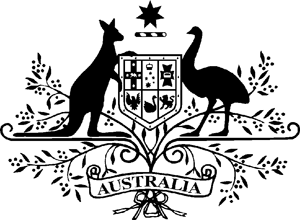National Archives reports 95% digital by 2015

Australia’s Digital Transition is on track, with 95% of Commonwealth agencies reporting they will have digital records and information management in place by 2015, according to the latest assessment from National Archives of Australia (NAA).
NAA Director-General David Fricker told the Information: the Currency of the Digital Economy conference held in Canberra on May 29 “This is a great result!
“It shows that across the Commonwealth we have the strategic leadership, the expertise, the technology and the commitment to achieve this essential public sector reform.”
The Digital Transition Policy, announced in 2011, aims to migrate more than 200 Commonwealth Government Agencies, from the ABC to the Workplace Gender Equality Agency (WGEA), to digital recordkeeping.
It aims to promote the scanning of incoming paper records and states that records that are created digitally after 2015 will be accepted for transfer to the National Archives in digital formats only.
However in 2013, more than one third of Commonwealth Agencies reported they are still printing some digital records to paper, and only 65 per cent have adequate strategies in place to manage digital information for as long as it is required.”
“Of course, every silver lining has a grey cloud,” said Fricker, who noted that:
- Forty per cent of agencies report duplication of records in both digital and physical formats, with 20 per cent reporting relatively high levels of duplication;
- only 65 per cent of agencies have adequate strategies to manage electronic records for as long as they are required (up from 54 per cent in 2012 and 46 per cent in 2011); and
- Despite significant improvements, the extent to which agencies scan incoming paper records remains low at 65 per cent.
A final assessment of Commonwealth agencies' digital information management maturity and capabilities will be undertaken from July 1 to September 30 2014, after which the NAA will report to government to determine future strategies.
Fricker announced that the NAA would be setting new targets for 2020 that include:
- all new business and ICT systems and tools will comply with the International standard ISO 16175, Principles and Functional Requirements for Records in Electronic Office Environments;
- agencies will make and record business decisions digitally, using digital authorisations and workflows;
- the Archives will develop a Commonwealth data interoperability standard for safe, trusted and efficient sharing and re-use of digital information between agencies;
- all agencies will meet minimum metadata standards set by the National Archives so digital content is described, sharable and re-usable;
- all agencies will meet standard professional records and information management specialist qualifications, skills and capabilities set by the National Archives.
He also observed that corporate legal staff and Chief Financial Officers are expected to have professional accreditation in order to fulfill their responsibilities, recommending that key information and records management professionals in the Commonwealth needed to have de jure as well as de facto recognition of their skills in order to build a professional cadre.
A webcast of the Currency of the Digital Economy conference is available at http://theatre.deewr.gov.au/naa-may2014/
